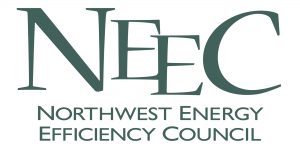The Washington State Legislature is in its first overtime period after House and Senate budget versions played to a tie as the buzzer sounded. After a short weekend break to re-hydrate, legislators broke their huddle and re-formed the scrum. While both legislative bodies make similarly deep cuts in state operating budget, they get there in different ways. Of specific interest to the energy efficiency industry, the House and Senate also have different versions for the capital budget. The House, under the leadership of Rep. Hans Dunshee, has $20M in their version of the capital budget dedicated to continuing energy efficiency grants to K-12 public schools. The Senate, with Rep. Derek Kilmer as chair of the capital budget committee, has no such allocation. As the House and Senate work their way to a compromise budget, the overarching issue between the bodies is the Senate’s desire for a law reducing the state’s current debt limit. The House has not shown an interest in that idea. The fate of the school energy efficiency funding will be known when the compromise deal is reached.
Another bill of interest to the energy efficiency community is ESB 5764 which creates a state initiative entitled “Innovate Washington”. This economic development initiative bill has contained within it the creation of a Clean Energy Partnership which, in earlier bill versions, provided some consolidated funding and authority for direction state energy efficiency/clean energy investments. On April 27th, the Senate passed ESB 5764 (43 – 0) but with striking amendments. For a complete copy of the striker language, visit Striker. The amended language does the following;
*Specifies that Innovate Washington will serve as the lead entity for coordinating clean energy initiatives in the state and establishing long-term funding.
*Adds to the duties of Innovate Washington to work with utilities, district energy providers, the Utilities and Transportation Commission, and the State Energy Office to improve the alignment of investments in clean energy technologies with existing state policies.
*Removes provisions establishing the clean energy partnership and clean energy fund and adds a clean energy component to the 5-year business plan produced by Innovate Washington.
*Removes the requirement that policies and procedures developed by the Department of Commerce for funding under the Energy Freedom Account, the Green Energy Incentive Account, and the Energy Recovery Act Account must be approved by the clean energy partnership and therefore the proposal does not change current law in this respect.
*Specifies that the clean energy component of the 5-year business plan must include a strategy for implementation for three of the primary market-driving initiatives identified by the Clean Energy Leadership Council in their 2010 report.
One the other side of Columbia River, the Oregon Legislature remains in session. As posted two weeks ago on the NEEC Blog, the energy efficiency industry was disappointed at the failure of Energy Performance Score (EPS) legislation to move through the process. You can’t manage what you don’t measure. Markets operate most efficiently when they have access to good information. Enough said. NEEC will continue to work with stakeholders in Oregon to make energy performance disclosure a reality in that state. More optimistically, the work to maintain and extend the Business Energy Tax Credit (BETC) for energy efficiency investments continues. Stakeholder conversations and legislative negotiations are continuing and NEEC governmental affairs specialist, Margi Hoffman, reports continued progress in finding bill language that maintains an energy efficiency BETC that can achieve legislative majorities. It is unrealistic to expect no changes in the BETC program, but NEEC is actively working to maintain good access to a state tax credit for energy efficiency investments in the state that make good economic sense and contribute to job growth in companies realizing additional work due to positive influence of the tax credit in end use customer decision-making. HB 2414 is the bill to monitor for progress on this issue.
Equally promising is the progress on the “Cool Schools” bill. A legislative priority of Governor John Kitzhaber, Cool Schools looks to put existing disparate puzzle pieces related to schools and energy efficiency in the state, and create a more dynamic and compelling opportunity for increased investment in public school energy infrastructure in the state. Moreover, the job creation potential of this effort has the Governor and key legislators looking for solutions that can put projects in the field immediately. Bill language continues to be the subject of stakeholder discussion and NEEC’s Salem representative, Margi Hoffman is representing our industry’s interest in that conversation. Watch HB 2960 for details as this issue progresses.
